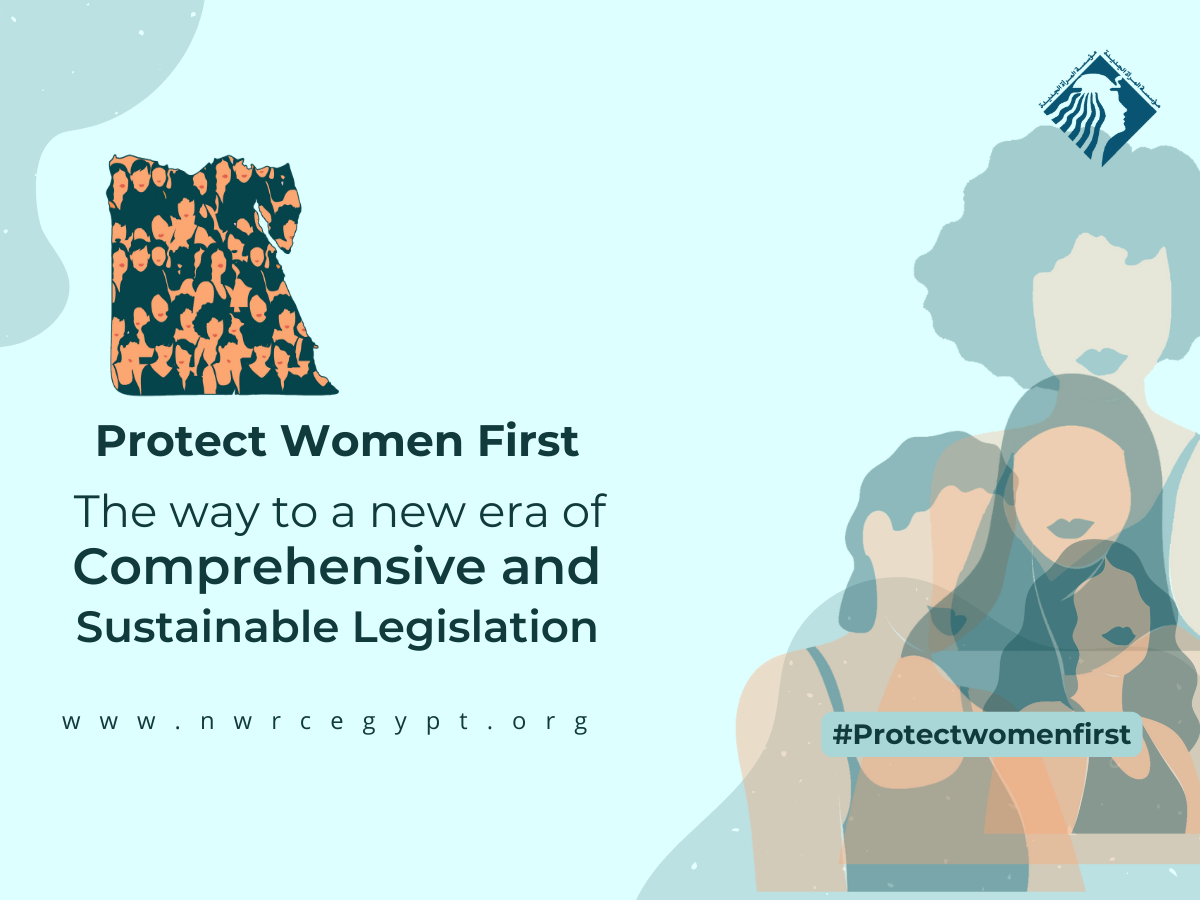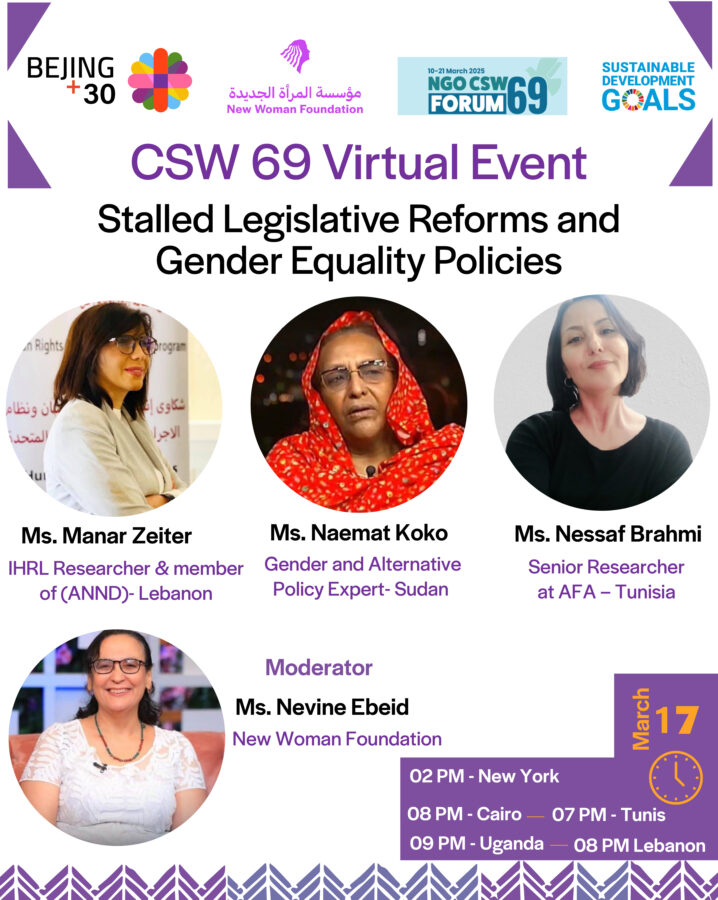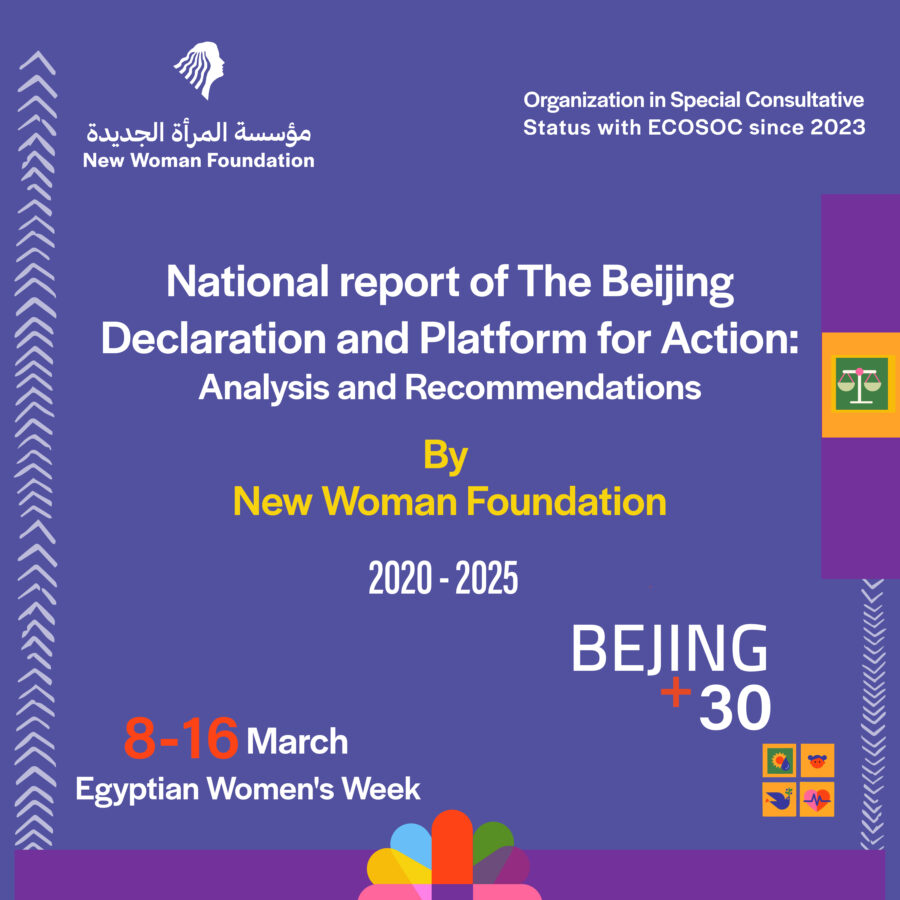- Contact Us
- 0020233382706
- nwrc@nwrcegypt.org
The way to a new era of comprehensive and sustainable legislation

C190 – Confronting Violence and Harassment in the World of Work Convention
June 27, 2022
New Woman Foundation’s Annual Budget for 2022
September 30, 2022Statement of the unified law campaign for combating violence against women
Usually, we are asked the following questions “What is the goal of a unified law for combating violence against women? What are its benefits? especially when it’s expected that sustainable partial legislative amendments will be implemented to the legislative protection structure. Also, what is the point of further legislation, even though there is always a stalemate in the implementation and effectiveness of laws?
In this campaign, we seek to respond to and engage with the majority of common visions and questions that will create uncertainty about the importance of introducing unified and inclusive legislation for combating violence against women. Also, we seek to advocate and win the support of many relevant parties to adopt the draft-unified law against violence.
In this campaign for a unified law against violence, we highlight the growing rates of violence against women in the public and private spheres. Also, we will address and analyze the complexity of cultural, social, and political causes that lead to increased rates of violent crimes against women. Furthermore, we will mention the legislative impediments that we face in passing a unified law for combating violence against Women. Moreover, we will address the obstacles that prevent the adoption of the unified law and consider it a placeholder for all relevant legislation and other executive legal procedures for combating violence against women.
More importantly is our campaign’s endeavors to overcome the expected conflict of the most common challenges to pass unified legislation for combating violence, in addition to the efforts to face the challenges that prevent legislation that seeks to adopt prevention and protection interventions against violence. These interventions should be binding on relevant parties under the umbrella of the law. Thus, moving to a new, inclusive and sustainable era of legislation.
The tools of our campaign include:
- Dialogues with stakeholders at the official level, elites, and women’s rights advocates of both genders;
- Introducing the views of violence survivors and academic/intellectual analysts specializing in violent crimes and the evolution of violence against women;
- Presenting the prevention and protection interventions and community change, etc.
We know that the obstacles to passing a unified law for combating violence against women aren’t only legislative obstacles, but they are mainly cultural and social obstacles. They are related to “political will”. Do we want to stop violence in the Egyptian family? Do we want a coherent community that is capable of conflict resolution and community peace-building? All of these are revealing questions that our campaign addresses to pass the draft-unified law for combating violence against women.



